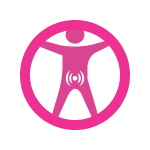
What are the symptoms of BPS/IC?
At first BPS/IC symptoms can be mild – then get worse with time and repeat in cycles that vary from mild to severe (when patients are in flare). These symptoms can improve for a while (usually over a few weeks) before returning in a cyclical pattern. They can also vary from day to day, but there are three common signs.
 Urinary frequency – both day and night (often because of decreased bladder capacity).
Urinary frequency – both day and night (often because of decreased bladder capacity).
 Urgency to urinate – an urge to urinate that never goes away, which patients may have just got used to but could get a lot worse with time.
Urgency to urinate – an urge to urinate that never goes away, which patients may have just got used to but could get a lot worse with time.
 Pain – pressure and tenderness around the lower abdomen, urethra, lower back or perineal area. Women may also feel pain in the vulva or vagina and symptoms may worsen during menstruation. Men may feel pain in the scrotum, testicles or penis. For both women and men pain can increase during urination and intercourse, as a woman’s bladder is right in front of her vagina and a man may have a painful ejaculation or pain the next day. Pain can be constant or it may come and go.
Pain – pressure and tenderness around the lower abdomen, urethra, lower back or perineal area. Women may also feel pain in the vulva or vagina and symptoms may worsen during menstruation. Men may feel pain in the scrotum, testicles or penis. For both women and men pain can increase during urination and intercourse, as a woman’s bladder is right in front of her vagina and a man may have a painful ejaculation or pain the next day. Pain can be constant or it may come and go.
If your bladder is full the pain feels worse, so going to the toilet will give you temporary relief. Similarly, certain foods or drinks and stress (physical or mental) may also make you feel worse. But it’s unusual to experience leaking of urine with this disorder – if this happens it might be a sign of another condition.
When should you see your doctor?
If you have persistent pelvic pain or you notice a change in your usual pattern of urination, you need to see a doctor.
A Bladder Smart Diary can help you keep track of your symptoms, record accurate information and help you in conversations with your doctor.
You might have already seen your doctor, and if necessary they may refer you to a specialist in conditions affecting the urinary system (a urologist) for further tests – such as a cystoscopy (a procedure that examines the inside of the bladder).
BPS/IC can be a very challenging condition to live with, and because it can be difficult to diagnose it can be hard to get people to really listen to what you’re telling them.

